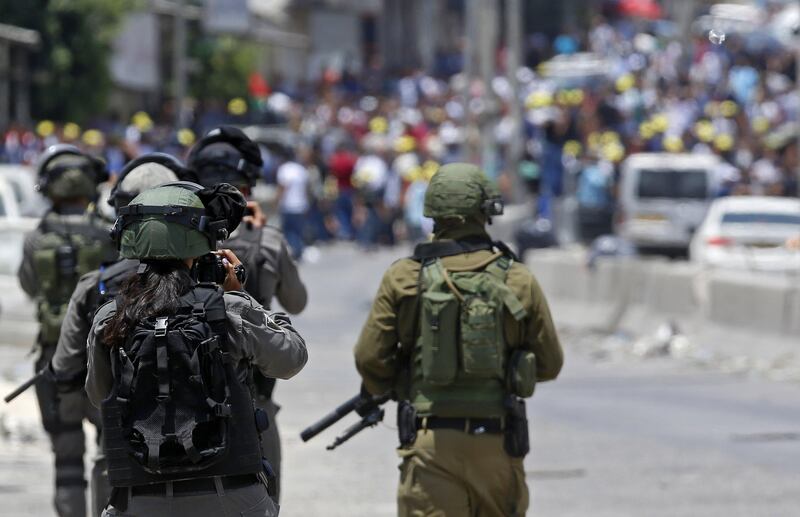Israel said it had sent more troops to the occupied West Bank on Saturday, just hours after Palestinian president Mahmoud Abbas announced he would freeze all ties with Israel until it removed metal detectors from the gates of Al Aqsa mosque compound in Jerusalem.
Israel did not elaborate on how many troops were sent to the Palestinian territory but said the move came after hundreds of soldiers were sent on Friday.
It follows an escalation in violence between the Israelis and Palestinians over tensions at Al Aqsa mosque compound. On Friday, three Palestinians were killed and dozens more injured by live fire from Israeli security forces during protests over Israel's implementation of the metal detectors and other so-called "security" measures at the compound.
Palestinians say these measures are not motivated by security at all but are an attempt by Israel to expand its control at the Muslim-administered site — known as Haram Al Sharif (Noble Sanctuary) — and change the status quo.
Also on Friday, a 20-year-old Palestinian man killed three Israelis in their home in the West Bank settlement of Halamish. In a Facebook post written before the attack, Omar Al Abed said he planned to avenge Israel's "desecration" of Haram Al Sharif.
On Saturday morning, Israeli troops searched Al Abed's family home in the West Bank village of Kobar and detained one of his brothers, the army said. Video footage released by the military showed soldiers leading away a handcuffed and blindfolded man.
The Israeli army said soldiers searched the house and measured it in preparation for eventual demolition. Ibrahim Al Abed, an uncle of the assailant, confirmed the family was told the house would be destroyed. Human rights groups say such demolitions amount to collective punishment.
The army also restricted all movement out of the village except for in "humanitarian cases".
Mr Al Abed said his nephew had been arrested three months ago by Palestinian security forces and detained for two weeks. He added that Omar had been violently interrogated about alleged plans to attack Israelis before he was released.
Israeli defence minister Avigdor Lieberman visited Halamish on Saturday and called on Mr Abbas to condemn the settler killings.
It came after Mr Abbas announced on Friday evening that he would "freeze" ties with Israel "on all levels" until the metal detectors are removed from Haram Al Sharif, but did not say whether this meant halting security co-ordination. Ending security ties would have far-reaching repercussions and sharply raise tensions with Israel.
* Additional reporting by Agence France-Presse





